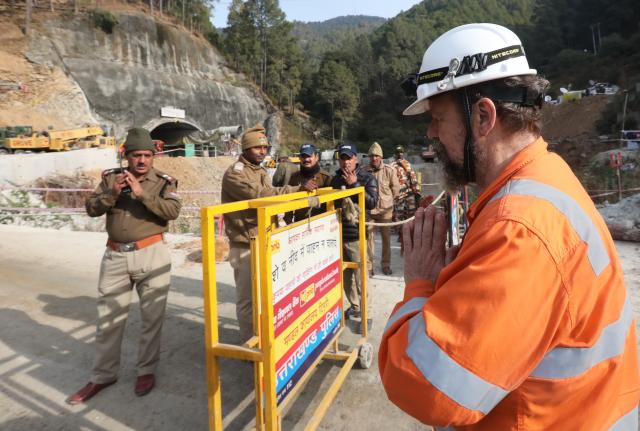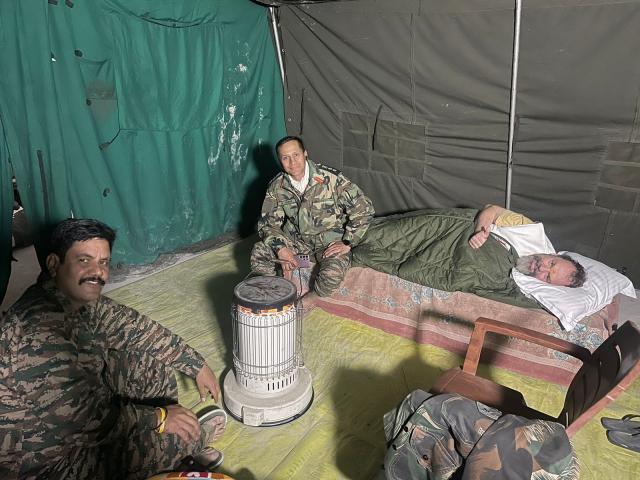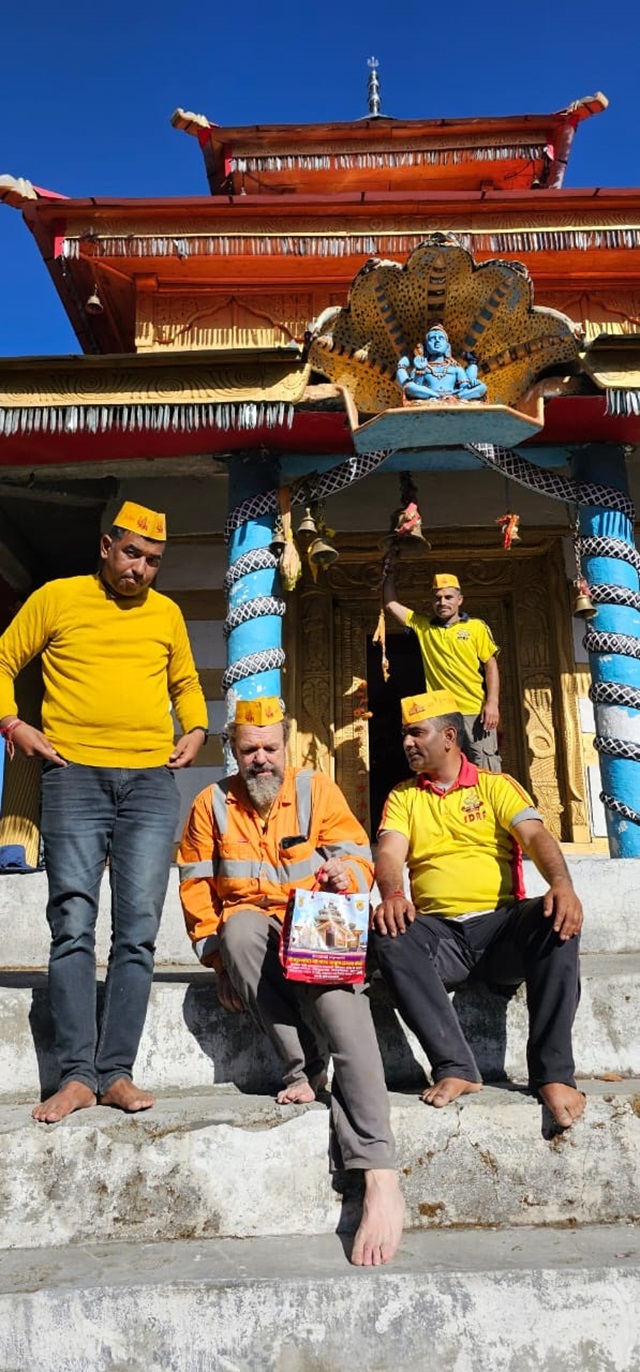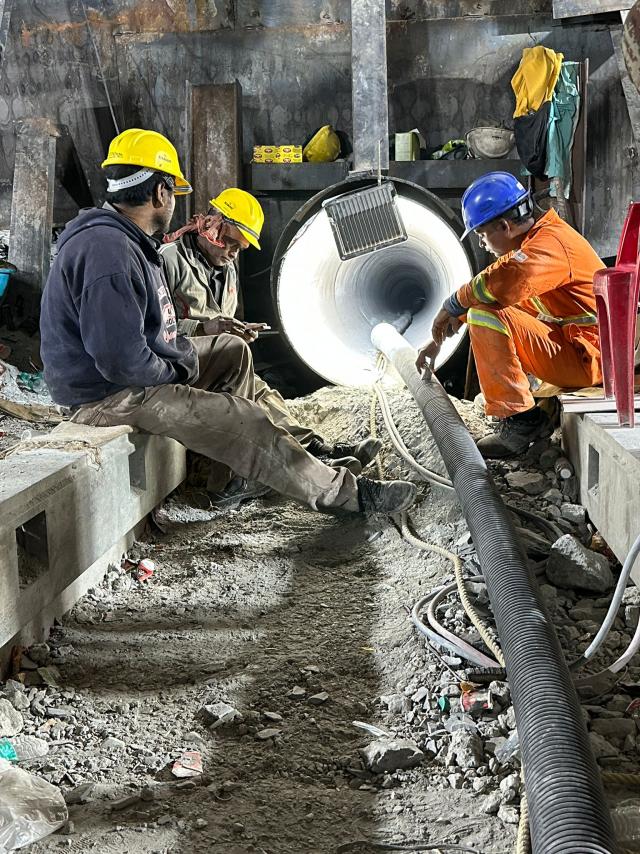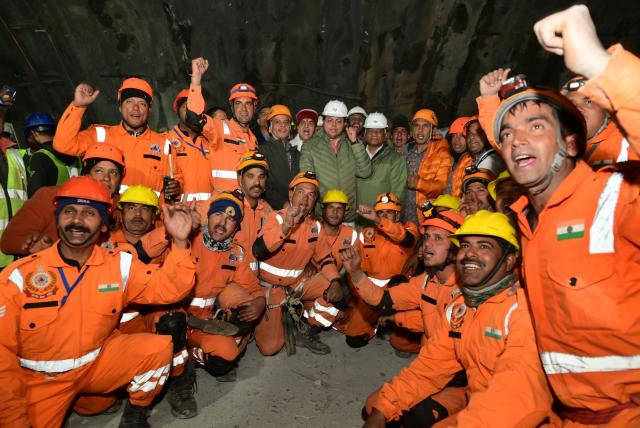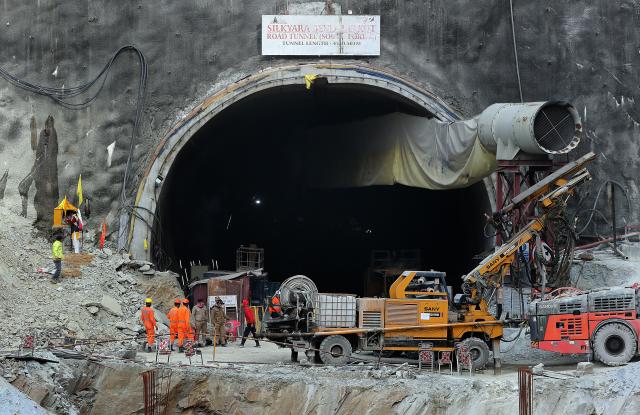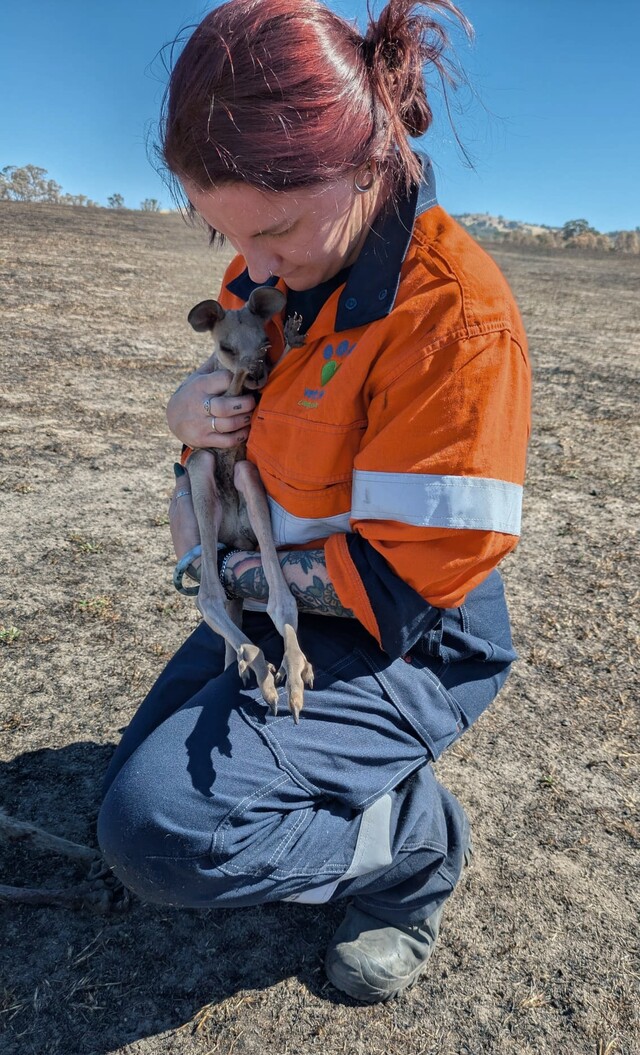Monbulk man Arnold Dix is being lauded for his efforts helping save 41 workers in India after the tunnel they were working in collapsed on 12 November.
Mr Dix, president of the International Tunnelling and Underground Space Association, spent 14 days trying to rescue the men, none of which were injured, after a landslide in the Himalayas caused a section of the 4.5-kilometre tunnel to collapse.
“It’s obviously a bit of a miracle, so I was just over the moon, and in fact; I wanted to video it, but I was so overwhelmed by the whole emotion that I forgot,“ Mr Dix told the Star Mail.
“To see 41 men emerge from what what on most views would have been a tomb, without a drop of blood, no one hurt at all, It’s just fantastic.
“I thought I was in a movie… It was like ’oh, this is so fantastic.’“
Mr Dix, a professor of engineering, said he was contacted by the Indian government while on another operation in Europe to help in the rescue.
“Since the war in Ukraine we’re busy building connections between Asia and Europe, but with a southern route,“ he said.
“I was giving some advice on that southern route as an alternative to coming through Russia, so it was part of the alternative to the Silk Road options; we’re trying to build several parallel connections between Asia and Europe to give some resilience to the international economy.“
In India, Mr Dix was inside what he called the ’red zone’; the area the team thought could collapse at any moment.
“I’m one of the principal advisors on the whole thing, but I’m a little different because the Monbulk boy in me tells me I’ve got to work as well, so I’m actually in the field,“ Mr Dix said.
“There was also a huge cavity where the avalanche had happened; you’ve got to imagine that the mountain had hollowed out and there was a 40-metre tall cave that had formed above where the collapse had occurred, and that was collapsing.
“I’m right in where the avalanche has happened… I have to put my hands on the walls and listen really carefully to hear what the mountain’s doing, because usually before a collapse, you’ll hear a bit of cracking sound as the rocks start to give way.“
He said there was no obvious way of rescuing the trapped men – who were carried out of the tunnel on stretchers on Tuesday 28 November, more than six hours after rescuers broke through the debris in the tunnel in Uttarakhand state.
Pulled out on wheeled stretchers through a 90cm wide steel pipe, the entire process was completed in about an hour.
Mr Dix said he did not consider the rescue a success until he had seen the 41 men out of the tunnel, describing the scene as a house with doors which are hidden and the people inside invisible.
“We thought that there might be a door at the front which is actually the one we ended up getting but the front door basically involves mining our way through and getting them out through the front door,“ he said.
“We also really importantly got a little window open which was the little pipe that we could fire the food down, so that was really good and that gave us a bit of time.
“There was a back method where we would come in the other end of the tunnel and then burrow with a small tunnel and come in the back of where they were, that was an option but my assessment was it was too dangerous because the tunnel itself at the back I thought was also prone to collapse; then there was the side option which was getting a tunnel boring machine and launching it from the side and then coming across a bit like Thunderbirds.
In the end, crews performed pipe jacking; hand mining inside a 800 mm, 60-metre long home made metal pipe through wreckage and “millions of tonnes of rock,“ Mr Dix said.
“We had all those options on the table but we were constantly balancing the risk of catastrophic collapse killing the people inside and us, so that would have been a bad news day in Monbulk if I hadn’t come home, because I wouldn’t have been able to go to the op shop and get all the big blokes clothes to wear,“ Mr Dix said.
Despite reporting some health issues after living in marginal conditions, eating dubious food and feeling worse for wear, Mr Dix – the self proclaimed “worst flower grower in Monbulk“ is preparing to return home to the Dandenong Ranges.
“I’ve got some big plans; I’ve got to fix the fence around the chickens because the fox got in, I’ve got to do the lawns because they’ve got long and my wife’s got hay fever,“ he said.
“I know the gutters are clean because summer’s coming and we’ve got to get all our water tanks full; these are my three major priorities when I get home.“
Mr Dix said he loves living in Monbulk because of the “quirky“ nature of the town, moving to the area at a young age.
“I’ve worked all around the world but I always go home to Monbulk to my little Monbulkian farm,“ he said.
“I do serious stuff and hang out in Monbulk in my neoprene gum boots, so that’s part of the lovely work -life balance that I have.
“I actually drove trucks for Nishiki Nursery, because I couldn’t go to work, and they’re really nice and I spray weeds for people because I like it, I like helping people out.“
For Mr Dix, the rescue was a triumph of good people doing good things in a time of adversity.
“Everyone’s so nice, and we all worked so well together, and we basically did the impossible.
“I might have annoyed everybody because I went playing with my emergency friends up the mountain; I missed my chopper and my phone wouldn’t work because I was at the top of the Himalayas.“

